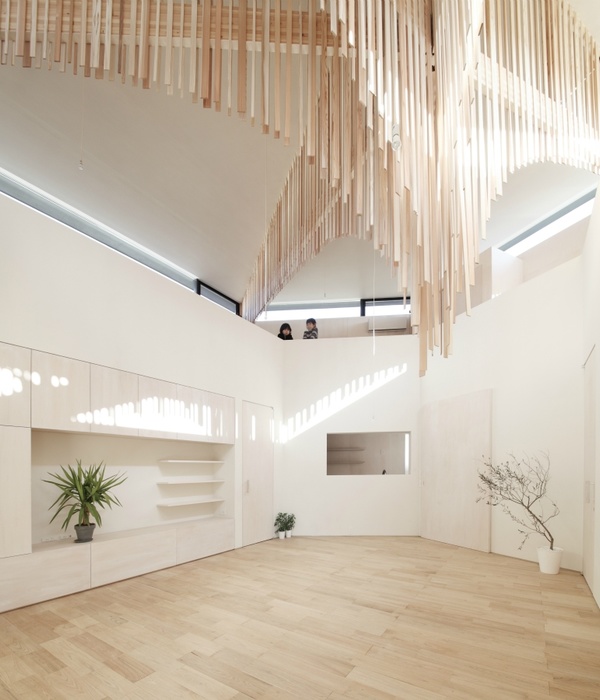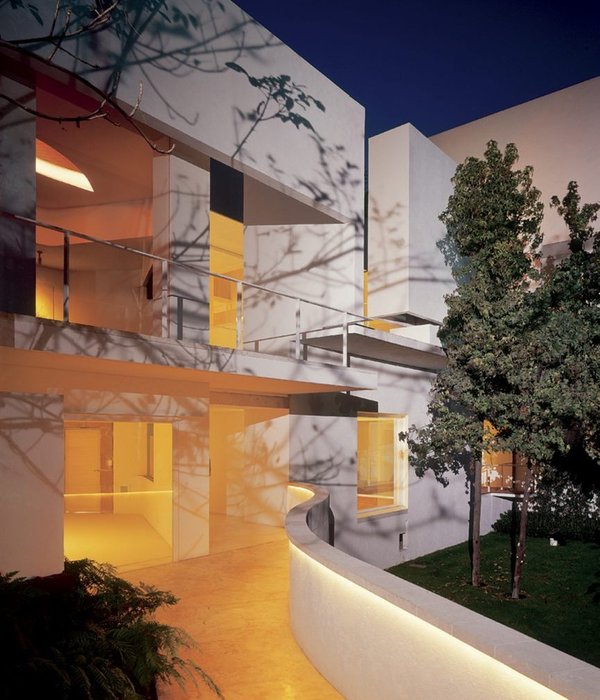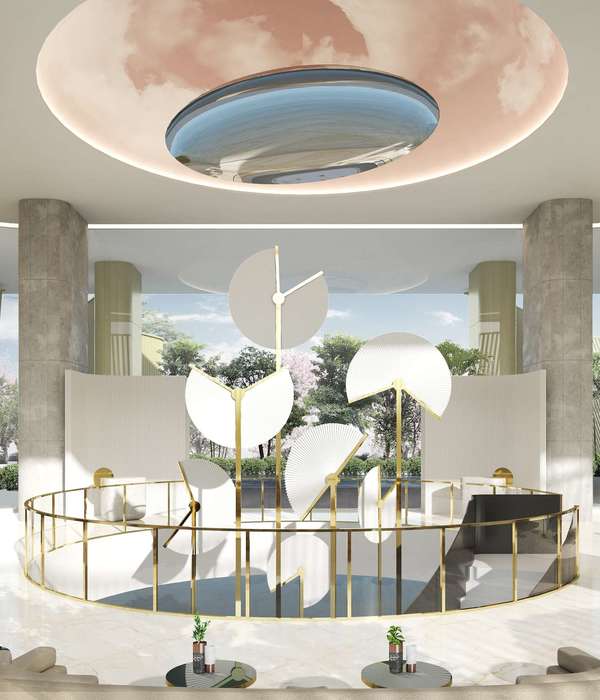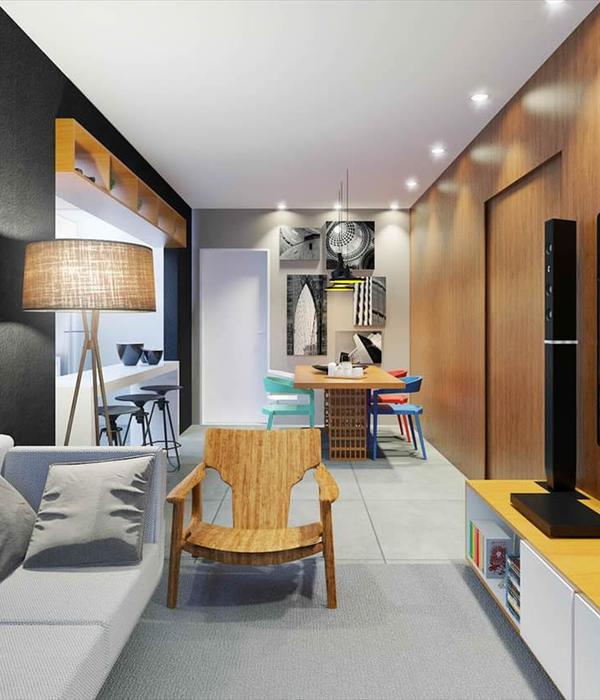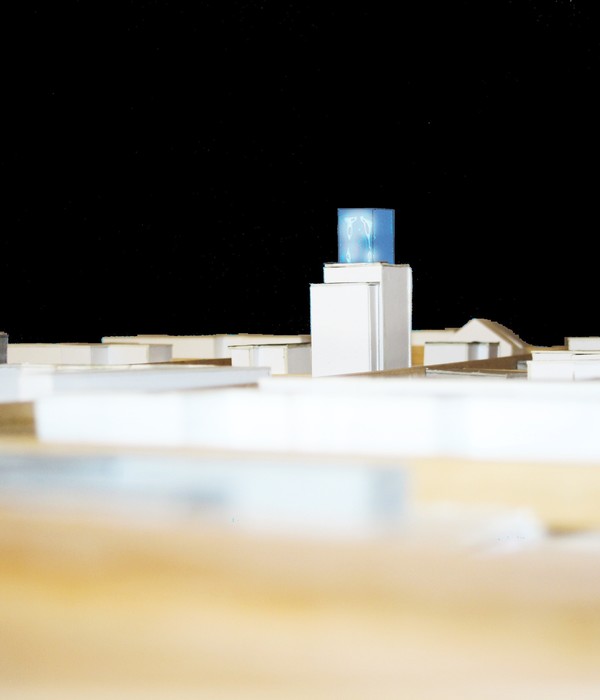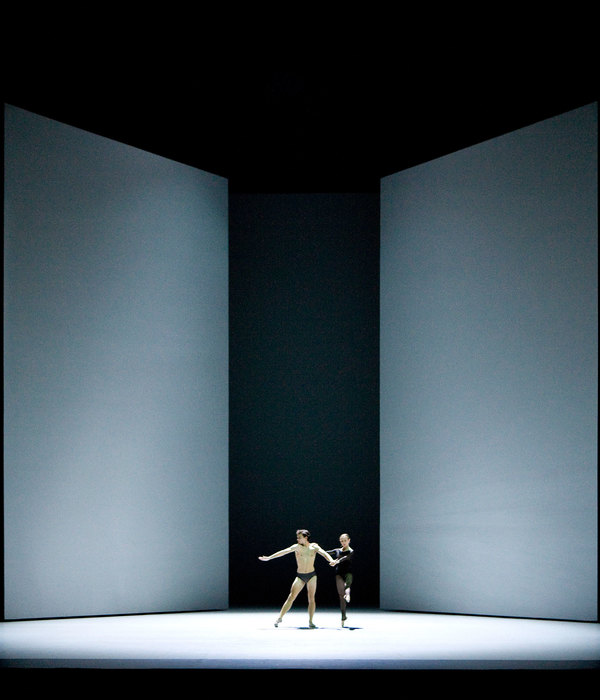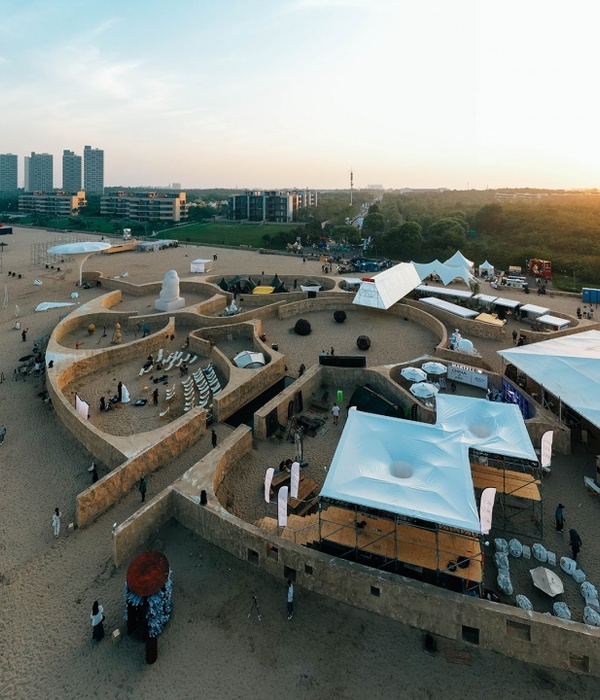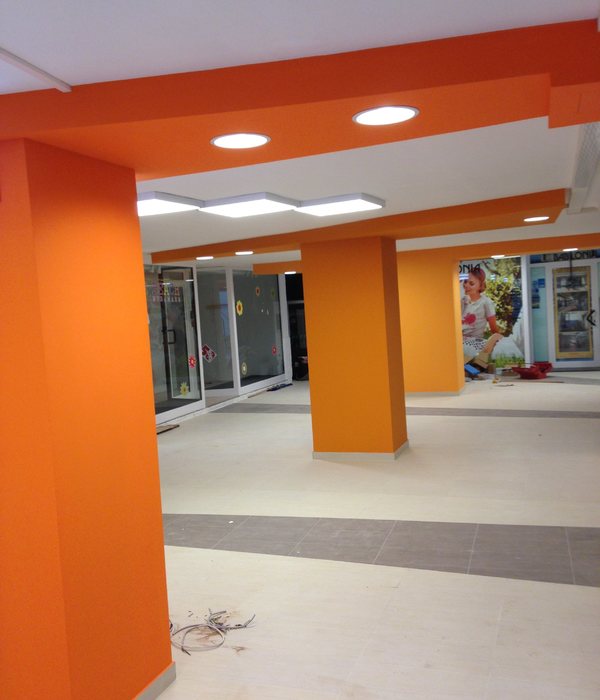Rainbow Chapel
Unconventional wedding venues are getting more popular among Chinese. In the last few years there was an increased demand for modern locations for wedding ceremonies. One of the latest addition to this industry is the Rainbow Chapel, by Coordination Asia. Built in the G+Park, in Shanghai, the pavilion is a basic cylinder, inside a partially opened cube.The circle and the square are both symbolical for the Chinese culture. “The circle represents fullness and unity, while the square stands for honesty and virtue, and when combined, they give a sense of perfection and offer a place of luck.” While modern in approach, they still care for their heritage, their traditions and customs.
via Coordination Asia
The ritual of passing is also depicted in the bridge you have to cross, over a pond of water, to enter the pavilion. This might also be a reference to the sacred union that is celebrated between two people inside this building, like the ancient dynasty palaces, that were enclosed into three circles of water, hinting to the purity of the royal family.65 shades of colors were used for the 3060 glass elements which are creating the outside wall. The Rainbow Chapel is a light rainbow colored opened space, filled with different hues depending on the sun position in the sky. Aside from the childhood memories, it also brings joy and happiness to the people entering. Let’s face it, It’s hard to hold your smile when seeing this féerie of colors.Coordination Asia is the design team for the entire G+Plus Park. Which was “designed around the Shanghai Museum of Glass”, and has “recently celebrated its 4 year anniversary and unveiled a lifestyle addition to its premises, pinning a new first for China: the inclusion of a wedding chapel into a museum park” – the Rainbow Chapel.
via Coordination Asia
project info:
type: wedding chapel location: shanghai, china area: 390 sqm completed: 2015 team: tilman thürmer, manuela mappa client: shanghai g+ culture creative developing co.,ltd photography: coordination asia
By Cristina Juc
via Coordination Asia
via Coordination Asia
via Coordination Asia
via Coordination Asia
via Coordination Asia
via Coordination Asia
via Coordination Asia
via Coordination Asia
via Coordination Asia
via Coordination Asia
via Coordination Asia
via Coordination Asia
via Coordination Asia
via Coordination Asia
via Coordination Asia
via Coordination Asia
via Coordination Asia
via Coordination Asia
via Coordination Asia
via Coordination Asia
via Coordination Asia
via Coordination Asia
via Coordination Asia
via Coordination Asia
via Coordination Asia
via Coordination Asia
via Coordination Asia
via Coordination Asia
via Coordination Asia
via Coordination Asia
via Coordination Asia
via Coordination Asia
via Coordination Asia
via Coordination Asia
via Coordination Asia
via Coordination Asia
via Coordination Asia
via Coordination Asia
via Coordination Asia
via Coordination Asia
section
section
plan
plan
plan
plan
{{item.text_origin}}

